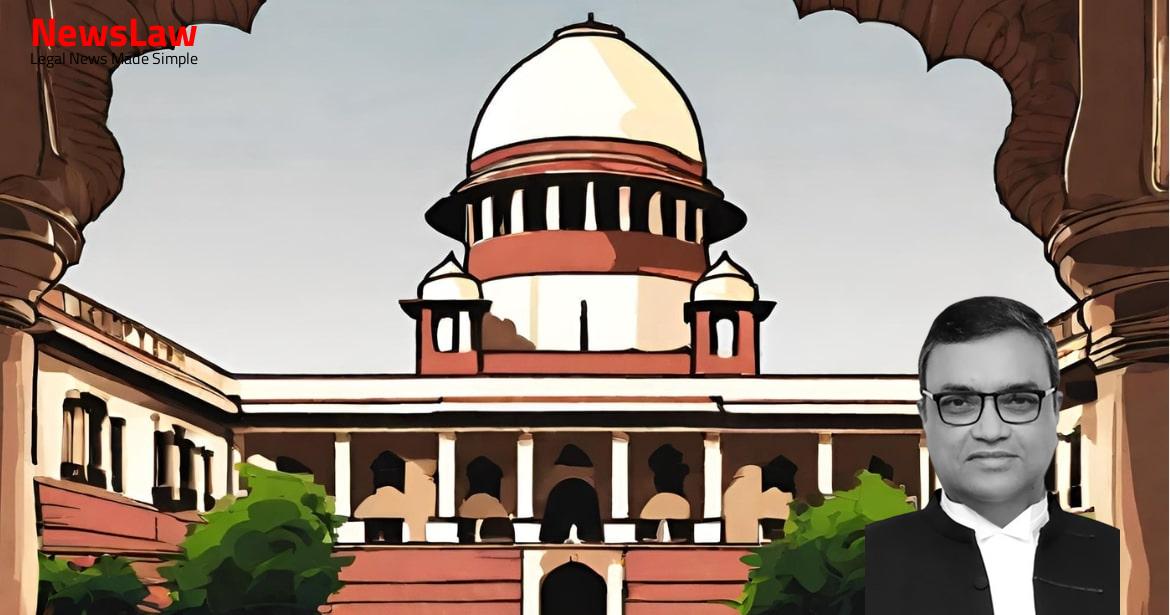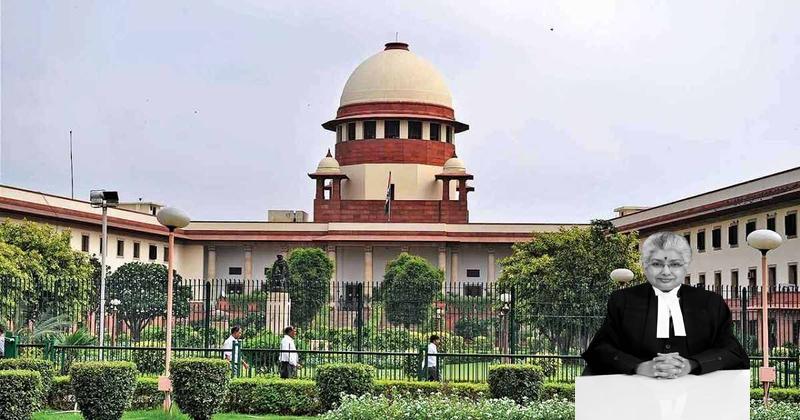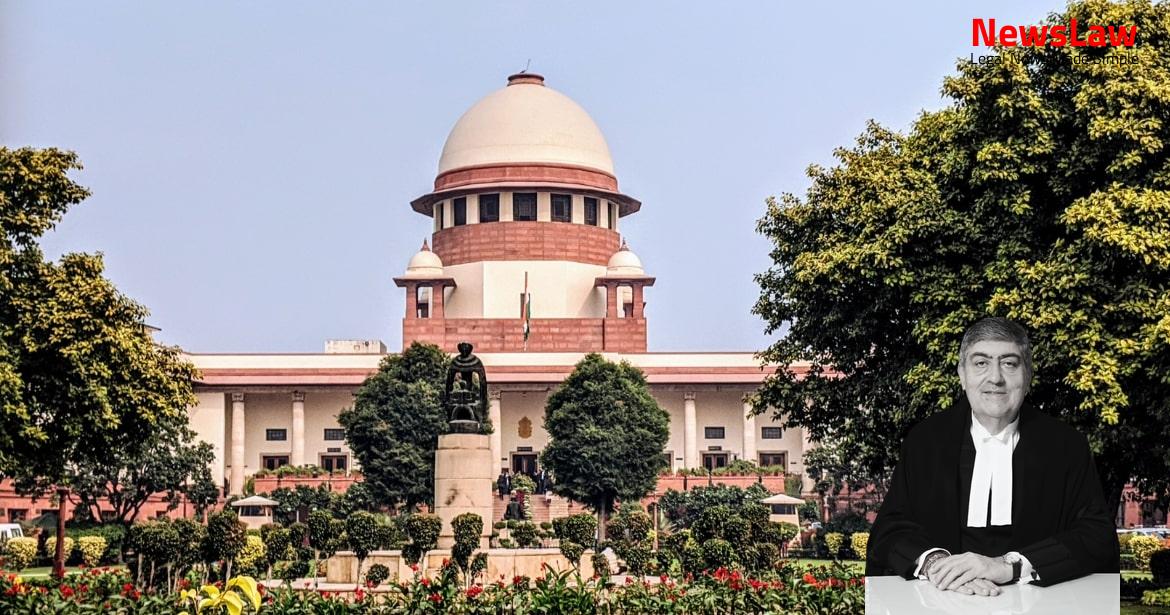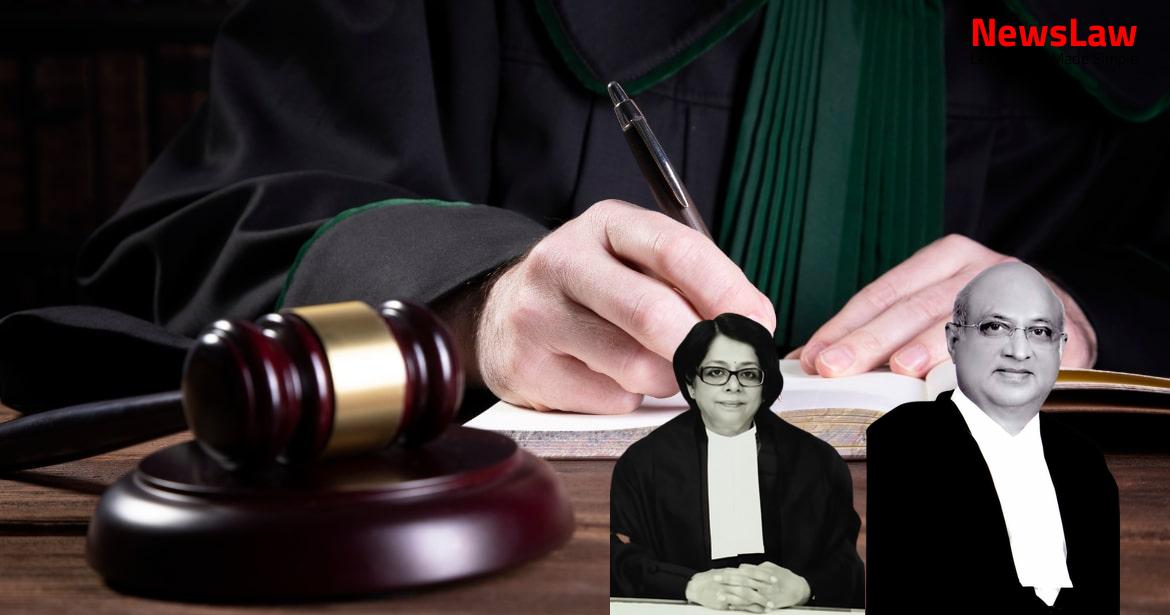Exploring the intricacies of review petitions in land acquisition cases, the Supreme Court of India recently delivered a significant legal judgement. The case involved considerations around the maintainability of review petitions and their impact on land acquisition matters. Dive into the detailed analysis of this case highlighting the legal implications and key takeaways for all stakeholders involved in land acquisition disputes.
Facts
- The decision in Pune Municipal Corporation is overruled along with all decisions following it.
- Recusal of the presiding Judge in the Constitution Bench was sought due to involvement in Shailendra case.
- The Review Petitions were deemed not maintainable due to the Explanation to Rule 1 of Order XLVII, CPC.
- The specific overruling of Pune Municipal Corporation and its implications were considered from Manoharlal case.
- The High Court allowed the writ petition based on Pune Municipal Corporation and similar decisions, interpreting section 24(2) of the 2013 Act.
- A common judgment in various civil appeals granted a period for appellants to initiate acquisition proceedings afresh under section 24(2) of the 2013 Act.
- The appellants sought a review based on the ‘liberty’ granted in Shailendra case, leading to the review petition being filed.
- Observation in paragraph 217 of Shailendra case was interpreted as ‘liberty’ by appellants and others, leading to multiple review petitions being filed.
- The Review Petitions arose from writ proceedings on the file of the High Court.
- These proceedings have attained finality due to the judgments and orders under review.
- The lead matter was the Writ Petition instituted by K.L. Rathi Steels Limited.
- The presiding Judge allowed the review/recall petitions.
Also Read: Pension Entitlement Dispute: Roadways Employees vs. Uttar Pradesh State Road Transport Corporation
Issue
- The issue at hand involves determining the maintainability of the review petitions (RPs) in light of the relevant laws and precedents.
- Key questions that arise for consideration include whether the review petitioners can be considered persons aggrieved, if the last sentence of a specific paragraph in a previous judgment grants liberty to seek a review, and evaluating the maintainability of the RPs in accordance with the Explanation in Rule 1 of Order XLVII, CPC.
- The court must also assess whether the RPs, if found to be not maintainable according to the applicable rules, should still be entertained based on other grounds put forth in the petitions.
- Additionally, the maintainability of miscellaneous applications related to the case needs to be examined.
Also Read: Land Title Dispute: Supreme Court Ruling on Contempt Proceedings
Arguments
- Learned senior counsel for the petitioners contended that the previous decision in Shailendra stands overruled based on a statement made by the respondents.
- The contention to reopen Srivastava v. State of U.P. and reliance on Manoharlal (5-Judge, lapse) were disputed by the senior counsel for the review petitioners.
- The petitioners argued for the maintainability of the review petitions based on the ‘liberty’ granted by the court in Shailendra, asserting it has the force of law under Article 141 of the Constitution.
- Mr. Sen urged that public interest should take precedence over private interest in case of a conflict, supporting the plea for review.
- The counsel for the petitioners prayed that the review petitions should not be dismissed at the threshold considering the equitable considerations involved in the matter.
- The argument was made that justice should be dispensed by not upholding the respondents’ objection to the maintainability of the review petitions based on an overruled judgment.
- Ms. Bhati referenced the dissent by Hon’ble Dr. D.Y. Chandrachud, J., arguing against the Explanation as a bar to the RPs’ maintainability.
- The dissent’s finding did not favor the review petitioners.
- The ‘GROUNDS’ in the RPs opposed by Mr. Divan and Mr. Giri were factual in nature, lacking details of counter arguments and defenses raised earlier.
- Shailendra case, decided by a co-equal Bench, did not have the power to allow the RPs or declare Pune Municipal Corporation case per incuriam.
- Many RPs were filed after significant delays without adequate explanations provided by the review petitioners.
Also Read: Land Acquisition Proceedings: The Doctrine of Merger and Res Judicata
Analysis
- The majority in Shailendra (supra) did not give carte blanche to land acquiring authorities to apply for review of decisions already made by courts
- The Court’s role is to adjudicate, not advise parties, actus curiae neminem gravabit prevents harmful acts
- Accepting the interpretation of the relevant sentence in Shailendra (supra) would lead to chaos and disturb the principle of finality of judicial decisions
- The understanding of the liberty granted by Shailendra (supra) for review petitioners to file RPs is incorrect and could result in confusion in the justice delivery system
- Dismissal of review/recall petitions at the threshold as not maintainable would lead to injustice and undermine public interest
- The judiciary in India possesses inherent power under Section 151 CPC to recall its judgment or order if obtained by fraud on the court
- The understanding of liberty granted in Shailendra (supra) for review petitioners is incorrect and could lead to chaos in the justice system
- The Explanation in Rule 1 of Order XLVII was inserted in 1976.
- The Explanation states that a subsequent judgment of a higher court reversing the judgment relied on in the order under review shall not be grounds for review.
- The Landowners in the case maintained their status as owners from the date of Notification under section 4(1) of the 1894 Act.
- The RPs filed were not consistent with the judicial discipline required in review situations.
- The Court should exercise prudence when critical of a precedent of a previous Bench.
- The Law Commission recommended an amendment which was ultimately approved by Parliament and inserted in Order XLVII.
- The Court should defer to previous Bench decisions and maintain judicial discipline.
- Subsequent events or developments cannot be taken into account for review unless they show an error apparent on the record.
- The power of review is regulated by the statute and is not an inherent power.
- Applications for review must adhere to the grounds specified in the law.
- Order XLVII Rule 1 of the 2013 Rules states that no application for review in a civil proceeding will be entertained except on specific grounds mentioned in Rule 1 Order XLVII, CPC.
- The Rule explains the circumstances under which a review can be sought, such as a decree or order from which no appeal is allowed by the Code or a decision on a reference from a Court of Small Causes.
- The review can be applied for if there is a discovery of new and important matter or evidence, a mistake or error apparent on the face of the record, or for any other sufficient reason.
- Section 114 and Rule 1 of Order XLVII, CPC together provide the framework for seeking a review, with conditions related to the person aggrieved, the circumstances in which a review can be sought, and the grounds for review.
- The review power under section 114 can be exercised on the grounds of discovery of new evidence, mistake on the record, or any other sufficient reason.
- A fact-finding inquiry is necessary to determine the rightful claimant for receiving compensation.
- Orders of the High Court that were under challenge in the Civil Appeals have been set aside.
- The process of determining the rightful claimant will be as directed in paragraph 121 of the judgement.
Decision
- Compensation determined by relevant authority to be deposited with reference court in a fixed deposit account.
- Invested amount to be renewed periodically until writ petition is disposed of by nominated bench.
- Release of invested amount with accrued interest contingent upon High Court decision.
- Directions issued in paragraph 121 do not extend to eight miscellaneous matters.
- Three cases identified without RP or miscellaneous application filed.
- Inquiry to determine if transfer post Notification under section 4(1) of the 1894 Act is valid.
- Chief Justice requested to constitute dedicated bench for specified writ petitions.
- Contempt petition case identified for decision by nominated bench.
- Opportunity for landowners/subsequent purchasers, GNCTD, and DDA to submit additional documents.
- Independent fact-finding enquiry reports may be obtained if necessary.
- High Court to decide relevant writ petitions once inquiry is complete.
- Second set of cases listed for specific action by nominated bench.
Case Title: GOVT. OF NCT OF DELHI THR. ITS SECRETARY, LAND AND BUILDING DEPARTMENT . Vs. M/S. K.L. RATHI STEELS LTD. . (2024 INSC 454)
Case Number: MA-000414 – 2023



